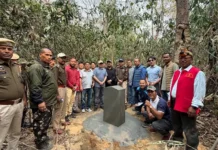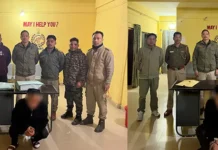Riba Gyadi, Seijosa (Lecturer, RGGP, Itanagar):
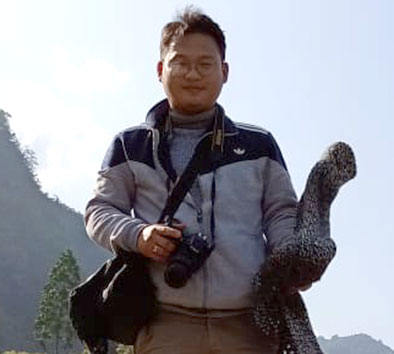 My favourite childhood memories are of hornbills flying above our house with us singing ‘Dho-nestikka de-de.’ My friends and I would run and laugh believing that we would get new clothes if we get a ‘Tikka.’
My favourite childhood memories are of hornbills flying above our house with us singing ‘Dho-nestikka de-de.’ My friends and I would run and laugh believing that we would get new clothes if we get a ‘Tikka.’
Whenever I go back to my hometown Seijosa, it always amazes me how everything has changes but this beautiful forest just across the Pakke River stays the same. Seeing the vast forest of the Pakke Tiger Reserve (PTR), I think how lucky those trees and animals are; protected from human interference, and give us a sense of pride. I always wanted to visit the heart of our tiger reserve to see it breathing, laughing and living. I never ever imagined that a highway will pass through it cutting down all the veins and nerves of the forest.
I want to tell the world that the PTR is not just a protected area but an embodiment of a mother in whose arms I have played, fallen down, raised and brought up. Therefore, it is my heartfelt request to our government to reconsider the plan of constructing a highway through the PTR.
Hassang Techi Tara, Rilloh (BA Tourism):

I lived in Seijosa for eight years when I did my primary and secondary schooling. When I returned home, I took pride in telling my friends about the rich floral and faunal diversity we witnessed. I was disheartened to learn about the construction of a road through Pakke. The newspaper article said that the road would connect Seijosa to Bhalukpong without having to go via Assam, which is sometimes a good thing because of unpredictable bandhs in Assam. But then a coin has two sides. Constructing a road through the heart of the reserve area will change the demography of the forest immensely. Huge numbers of trees will be cut and large numbers of animals will be displaced and possibly killed. With already declining animal numbers, the construction of this road will add salt to the existing wound. I believe and hope we can find a better alternative.
Kojum Para, Upper Seijosa (BA Mass Comm):

As a media student, I would like to raise my voice against the construction of the highway between Bhalukpong and Seijosa. My involvement in this matter is mainly because of my concern about wildlife. Its consequences will not only harm wildlife but will also give birth to global warming as the forest will be cut off. For instance, underground water in several cities is limited due to deforestation. This will be seen in our own state if we do not take proper precautions. Moreover, the most esteemed festival ‘Pakke Paga Hornbill Festival’ is supposed to conserve and protect hornbills and other wildlife. So, we seek development but not by harming the ecosystem.
Bawe Bole, Upper Seijosa (BA Mass Comm):
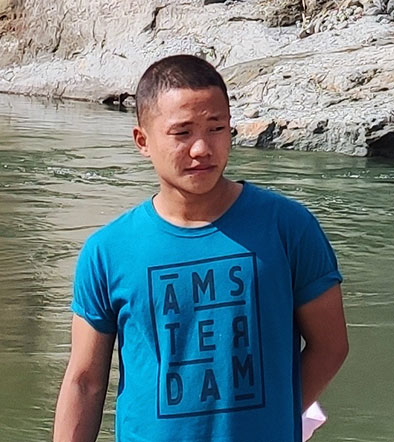
We are the children of Pakke. Pakke plays a vital role in our community. For many generations, our community has been dependent on Pakke. As a matter of fact, it gives us pride and prestige. Also being Nyishi, our community’s love and support has always been a pillar of encouragement, and now it is important to empower our people to take decisions on management and conservation of our Pakke Tiger Reserve. The proposed highway will take our fortune away from us.
Vijay Nabum, Upper Seijosa (Diploma in Civil Engg):
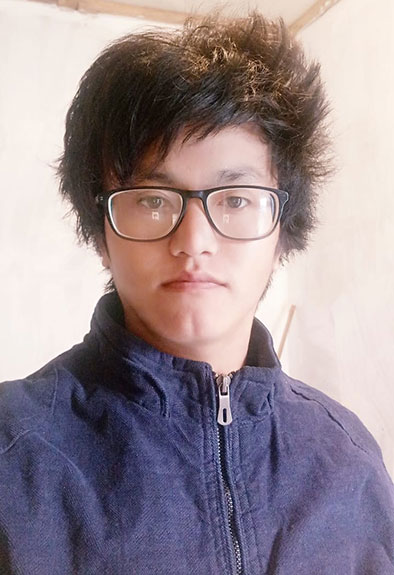
I am a local from Seijosa and our mornings and evenings are spent amidst elephants trumpeting, barking deer sounds, carnivore roars and birds chirping. We hear different birds fly above us from Pakke. That is the beauty of the Pakke Tiger Reserve. If the road is constructed, forests and trees will decline and be destroyed. Timber will be used for business purposes and be put out for trade and sale. The road connection will enable hunting and fishing in Pakke. This will create a lot of human-wildlife conflict.
Samuel Langlang, Upper Seijosa (BE Civil Engg):
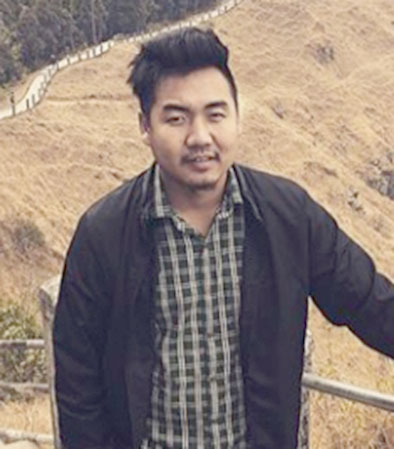
As a native of Seijosa, I have spent my entire childhood near the Pakke Tiger Reserve and have experienced its beauty. The Pakke Tiger Reserve is not only famous for its wildlife but also for its geography and local communities. Today, the need to preserve wildlife is a global problem. The road passing through the Pakke Tiger Reserve will not only harm wildlife and cause deforestation, but also lead to more hunting and smuggling of animal organs and skins. The need of the hour is for us as human beings, especially the educated ones, to understand the gravity of the problem and deny the construction of the proposed road.
Junali Welly, Seijosa (MSc Horticulture, MU):

When the whole world is making an effort to save forests, we cannot make decisions to destroy nature in the name of development. We want development but not at this cost. This highway project is like triggering the matchstick inside an oil reserve. The reserve faces pressure from poaching, illegal timber operations and if a road passes through, it will be like a gateway for the timber mafia and poachers. There might be encroachments along the road as we know where there is road there are people and where there are people there are houses. As a native of Seijosa, we don’t want to tell our children that once there was a tiger reserve here with lots of animals, birds and trees. Therefore, I request the government to divert the highway without touching an inch of the Pakke Tiger Reserve. Long distance route from Bhalukpong to Seijosa and vice versa is not a problem for us. Instead, we will be happier if we can save our Pakke Tiger Reserve.
Kampung Bagang, Upper Seijosa (BA Sociology):

I feel blessed to be born in a place where I am so close to nature and can enjoy the scenic beauty almost every second of my life. The Pakke Tiger Reserve is home to many wild animals and one the richest biodiversity places in the world.
I’ve also witnessed the efforts of our people who’ve helped in conservation and protection of Pakke. Constructing a highway through Pakke will cause heavy loss in flora and fauna and cause an imbalance in nature. Development is important and so is protection of nature. We know that our place is in serious need of development but not at the cost of destroying our environment. So, any idea or project that will cause loss of natural habitats and livelihoods in the name of development needs to be stopped.

